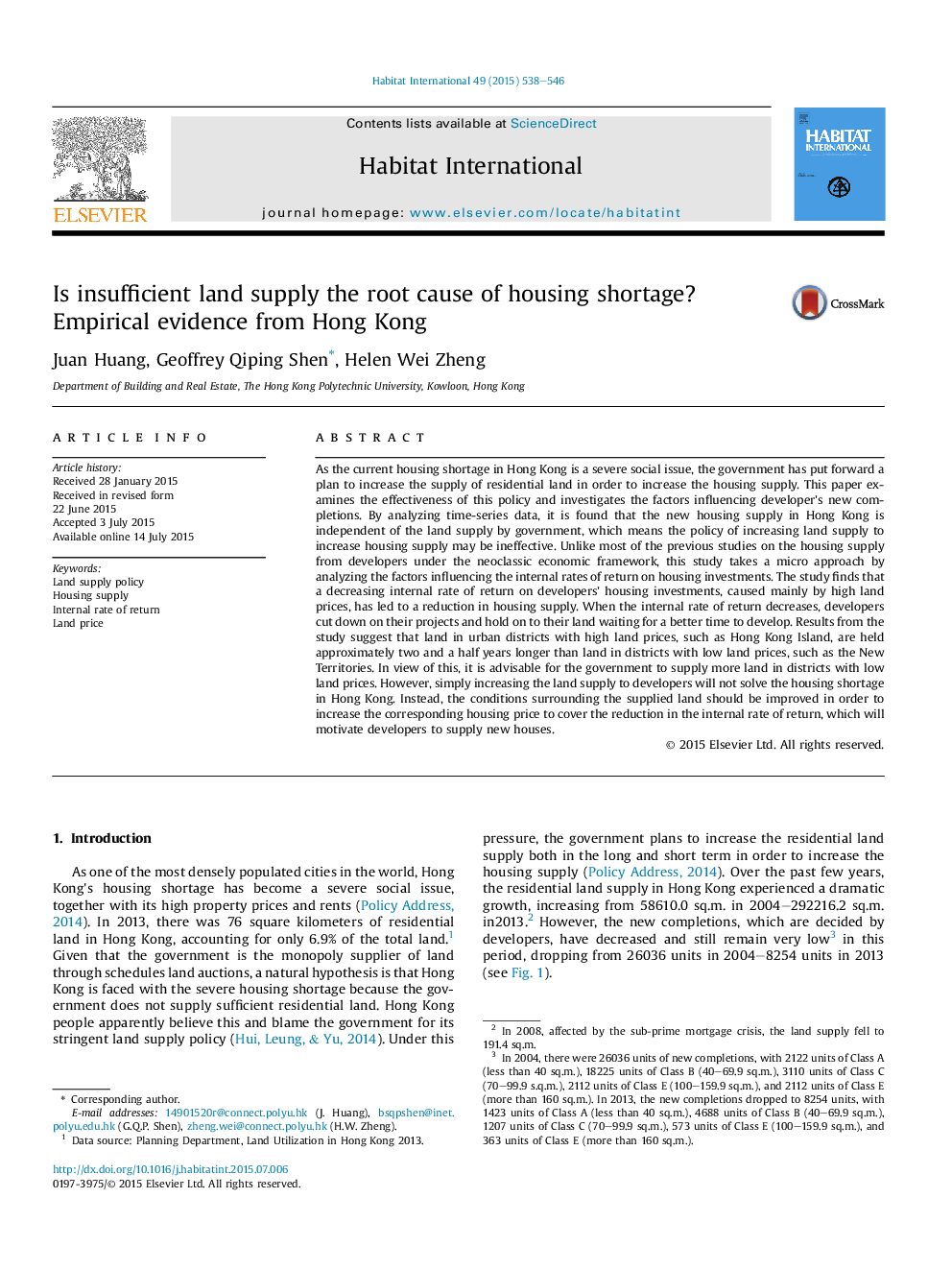| Article ID | Journal | Published Year | Pages | File Type |
|---|---|---|---|---|
| 7456349 | Habitat International | 2015 | 9 Pages |
Abstract
As the current housing shortage in Hong Kong is a severe social issue, the government has put forward a plan to increase the supply of residential land in order to increase the housing supply. This paper examines the effectiveness of this policy and investigates the factors influencing developer's new completions. By analyzing time-series data, it is found that the new housing supply in Hong Kong is independent of the land supply by government, which means the policy of increasing land supply to increase housing supply may be ineffective. Unlike most of the previous studies on the housing supply from developers under the neoclassic economic framework, this study takes a micro approach by analyzing the factors influencing the internal rates of return on housing investments. The study finds that a decreasing internal rate of return on developers' housing investments, caused mainly by high land prices, has led to a reduction in housing supply. When the internal rate of return decreases, developers cut down on their projects and hold on to their land waiting for a better time to develop. Results from the study suggest that land in urban districts with high land prices, such as Hong Kong Island, are held approximately two and a half years longer than land in districts with low land prices, such as the New Territories. In view of this, it is advisable for the government to supply more land in districts with low land prices. However, simply increasing the land supply to developers will not solve the housing shortage in Hong Kong. Instead, the conditions surrounding the supplied land should be improved in order to increase the corresponding housing price to cover the reduction in the internal rate of return, which will motivate developers to supply new houses.
Related Topics
Social Sciences and Humanities
Social Sciences
Development
Authors
Juan Huang, Geoffrey Qiping Shen, Helen Wei Zheng,
